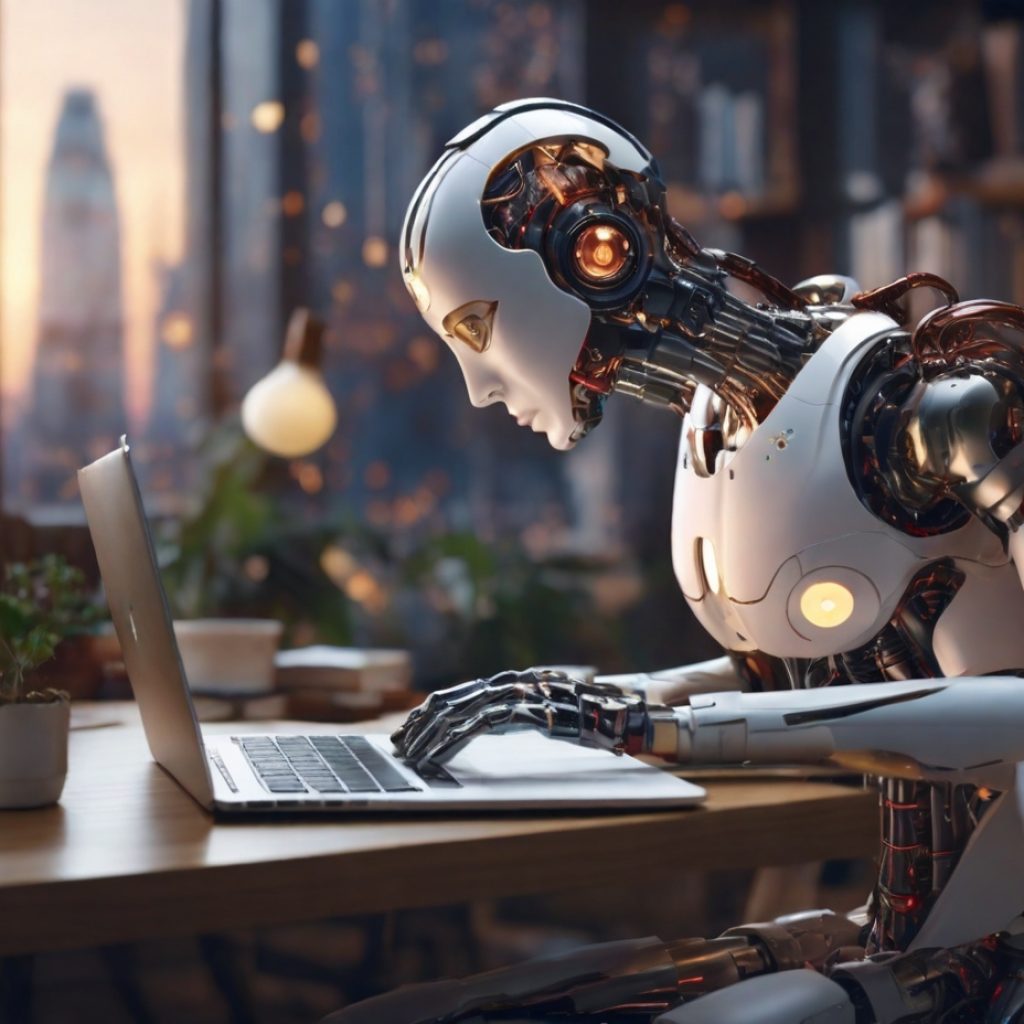Policymakers grapple with the challenge of bridging the AI digital divide to ensure fair distribution of the benefits of artificial intelligence. As the rapid adoption of AI disrupts nonroutine tasks, concerns arise over job security and socio-economic inequalities. Vishal Rana and Bert Verhoeven discuss possible solutions, including a universal basic income, to help individuals cope with the transitional changes brought about by AI. In the quest to address this critical issue, it is essential to approach it with empathy and a clear understanding of its potential implications for society.
Job displacement and upskilling
The capability of AI to automate tasks has sparked concerns about job displacement. While AI presents opportunities for new jobs that never existed before, there remains a challenge in upskilling and reskilling the workforce to adapt to emerging roles. The lack of adequate resources for individuals from less advantaged socio-economic backgrounds could exacerbate the AI digital divide. To bridge this gap, governments and businesses must invest in comprehensive training and job services to facilitate a smooth transition to new positions where workers can leverage their skills and experience effectively. Emphasis on digital literacy, cognitive skills, creativity, growth mindset, and adaptability will be crucial in preparing individuals for the jobs of the future.
In Vishal Rana’s perspective, the real challenge lies in providing equal access to upskilling and reskilling opportunities for vulnerable groups and those from lower socio-economic backgrounds. As he points out, without this support, the AI divide may further widen, leaving a significant portion of the workforce behind.
Economic impact and concentration of power
The AI divide bears extensive economic repercussions, potentially amplifying pre-existing disparities and intensifying income inequality. High-skill laborers adept at harnessing AI technologies may experience productivity and wage increases, while displaced low-skill workers might suffer income loss, exacerbating wealth imbalances. Geographic discrepancies could worsen, with regions reliant on industries prone to automation facing economic downturns, creating a geographical digital divide.
Vishal Rana raises concerns about the concentration of power in relation to AI, pointing out that a few mammoth tech corporations driving AI superpowers could have a substantial influence on global AI standards and norms, potentially worsening global inequalities.
Addressing the AI digital divide
To alleviate the intensification of income inequalities, progressive taxation, and wealth redistribution should be considered. Implementing a universal basic income can counter potential job displacement, ensuring individuals affected by automation can meet their basic needs and prevent further expansion of the AI divide.
Governments and businesses must invest in training and job services to facilitate a smooth transition for workers disrupted by AI. Focusing on digital literacy, cognitive skills, creativity, growth mindset, and adaptability will be essential in preparing individuals for the jobs of the future.
To ensure AI’s development complements workers and enhances industry, governments can fund research into AI applications that augment workers. Public bodies can also direct the development of AI systems that benefit workers through their procurement.
Prioritizing the development of digital infrastructure, especially in underserved regions, is crucial. Access to affordable and reliable internet connectivity is essential for individuals to benefit from AI advancements. Comprehensive digital literacy and future skills programs should be established to equip individuals with the skills to navigate and effectively use AI.
According to Vishal Rana, decisive action on various fronts can help societies navigate the challenges of the digital divide and create an inclusive and equitable AI-driven future. This is the opportune moment for governments, businesses, and civil society to step up and work towards shaping a future that benefits everyone.
Paving the way for an inclusive AI-driven future
Bridging the AI digital divide requires collective efforts from governments, businesses, and civil society. By addressing challenges related to job displacement, economic impact, digital infrastructure, and power concentration, societies can ensure equitable advancement in the age of automation. Emphasizing education, upskilling, and reskilling opportunities will be crucial in empowering individuals to thrive in a technology-driven world. With proactive measures, we can shape a future where AI benefits everyone, leaving no one behind in the transformative journey of AI adoption.





